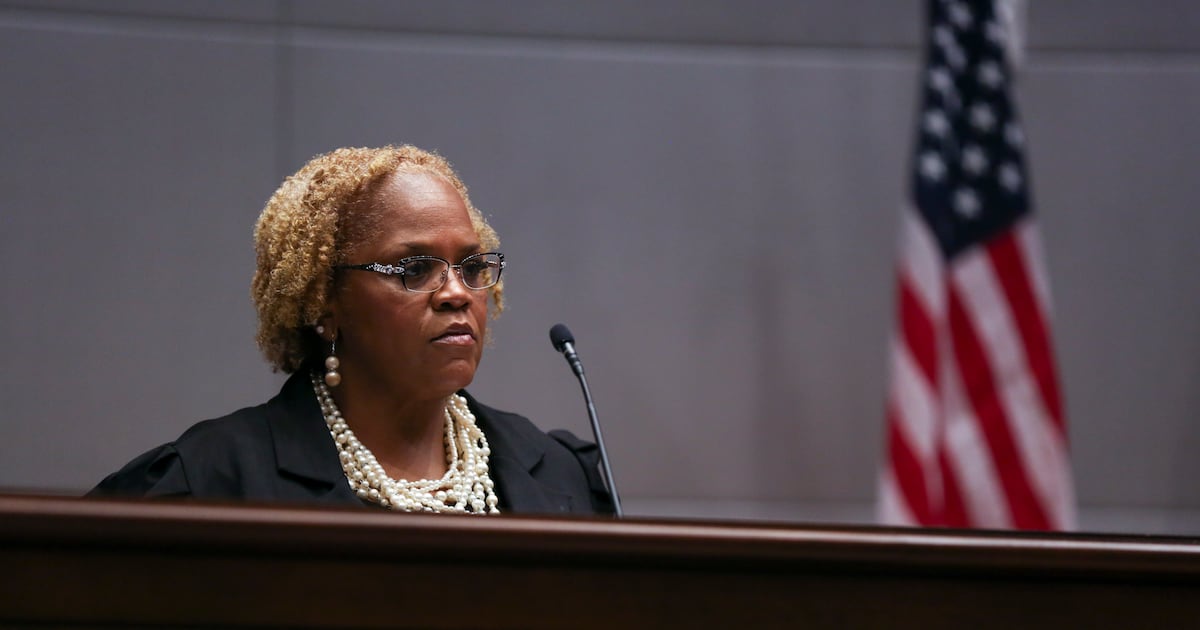
Abdur-Rahman’s attorney, Mark Shelnutt of Columbus, characterized Abdur-Rahman’s mistakes as honest and said they largely involved missed financial reporting deadlines. He explained that she had been inexperienced in politics and overwhelmed with trying to fund her own political campaigns.
“When she first started out in 2019, she didn’t have any staff or budget,” Shelnutt said. “Being fully abreast of all the campaign disclosure rules, and all that, is harder than it looks. She was working with little money and no financial assistance or financial backing. She just launched her campaign.”
Shelnutt added that his client had donated personal funds to her campaign from her savings and from loans against the titles for her cars. So payments she made from the campaign account to the car title company were just to repay those loans, he said.
“She wasn’t just using money to pay her own personal debt off,” Shelnutt said. “Instead of reimbursing herself, she made a payment to the title company a time or two, but it was on the same loan she had used for the campaign.”
According to the judge’s order, the State Ethics Commission referred the case to the court of administrative law in May. A hearing on the matter was set for Aug. 22 after it was postponed twice, but neither Abdur-Rahman nor her attorney appeared for it.
Before the August hearing began, an attorney for the State Ethics Commission and a deputy chief clerk of the court both called and left messages for Abdur-Rahman’s attorney but received no response, according to the judge’s decision. So the hearing went on without them.
But Shelnutt said neither he nor his client were aware that the hearing had happened or even of the ruling against Abdur-Rahman until this week, when a reporter for The Atlanta Journal-Constitution called.
Shelnutt said he had been trying to reach a settlement in the case with an assistant attorney general representing the State Ethics Commission.
“I thought we were going to work something out on it, but I guess they just went on and did the hearing,” Shelnutt said. “I didn’t get any notice about a hearing. I didn’t get a call about a hearing.”
Attempts to reach the assistant AG for comment were unsuccessful. But David Emadi, executive director of the State Ethics Commission, said Abdur-Rahman and her attorney were aware of all hearing dates and knew where the case stood.
“Additionally, Abdur-Rahman personally appeared at her preliminary hearing where she admitted fault in a recorded hearing,” Emadi added in a statement to the AJC.
Attempts to reach Abdur-Rahman for comment through her attorney and her chief of staff were unsuccessful.
The case involves alleged violations of the Georgia Government Transparency and Campaign Finance Act, which requires public disclosure of campaign contributions and expenditures.
According to state law, political candidates are only allowed to use campaign contributions to “defray ordinary and necessary expenses” incurred in connection with a candidate’s campaign for office or their “fulfillment or retention of such office.” That can include loans a candidate takes out to fund the campaign.
Abdur-Rahman lost a nine-person special election in 2019 for the District 6 seat on the Board of Commissioners, but she came back to win 2020′s regular Democratic primary. She was unopposed in the 2020 general election.
She won reelection in 2024 and begins a new term on the board this week.
According to the judge’s decision, Abdur-Rahman disclosed that from June 2019 to October 2020 she received $25,325 in contributions, including a $15,000 loan from herself. During that period, she disclosed a total of $60,505 in expenditures.
The decision cites more than 20 expenditures from the account that were not reported in campaign contribution disclosure reports. The disclosures were not voluntarily made by Abdur-Rahman but instead came to light after the Ethics Commission obtained the campaign’s bank records, the judge wrote.
The judge’s decision adds that 39 expenditures from the account “were not made to defray ordinary and necessary campaign expenses” and “implicate misuse of campaign funds.”
It also found that she failed to disclose repayment of the $15,000 loan she made to her unsuccessful candidacy in 2019.
“Once she was alerted to the mistakes she made, she took responsibility,” Shelnutt said of his client.
link





More Stories
Cavendish Financial Leads 3 Promising Penny Stocks On UK Exchange
The complete guide to personal finance in 2025
Surprising findings unearthed from decades’ worth of data